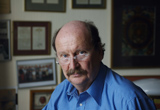 When we are confronted with two opposing views, we tend to look for the comfort of the middle ground hoping the truth might lie somewhere between the two extremes. For instance, if someone describes a play, a book, or a restaurant as brilliant and another person thinks it is awful, we might feel that, in fact, it probably is of moderate quality.
When we are confronted with two opposing views, we tend to look for the comfort of the middle ground hoping the truth might lie somewhere between the two extremes. For instance, if someone describes a play, a book, or a restaurant as brilliant and another person thinks it is awful, we might feel that, in fact, it probably is of moderate quality.
But, in many areas, this simplistic logic does not apply. If someone says the earth is flat and another person insists that it is a sphere, we cannot very well conclude the truth lies somewhere in the middle. Facts are facts and disagreements about facts cannot be settled by half-truths or semi-facts.
In healthcare, diametrically opposed views are not rarities. Some clinicians, for instance, are convinced that highly diluted homeopathic remedies work, others are sure that they do not. Some clinicians are convinced that spinal manipulation is a cure for many systemic diseases, while others doubt this notion. If a patient listens to two opposing views, she might look for the middle ground and conclude that these treatments work sometimes, or a little, or only for some people, or that the jury is out over their efficacy.
When journalists report on what they perceive as a controversial subject, they tend to present both extremes. Writing about homeopathy, for instance, they would first explain that a homeopathic remedy typically contains no active ingredient and that the totality of the reliable clinical trial data fails to show efficacy. Next, they would strive to create what they perceive as a balanced view by interviewing a homeopath who says that he has seen hundreds of patients getting better on homeopathic remedies. Consequently, the reader might conclude that these remedies work a bit, or sometimes etc.
The point I am trying to make is simple: our instinct to go for the safety and comfort of the middle ground can be a detrimental impulse, particularly in those areas of healthcare where the facts are knowable and clear. The middle ground fallacy thus frequently leads us astray, unnecessarily clouds important issues, and hinders rational therapeutic decisions. By misguiding us in this way, it can cause considerable harm to patients.
Edzard Ernst is emeritus professor of complementary medicine at the Peninsula Medical School, Exeter.
